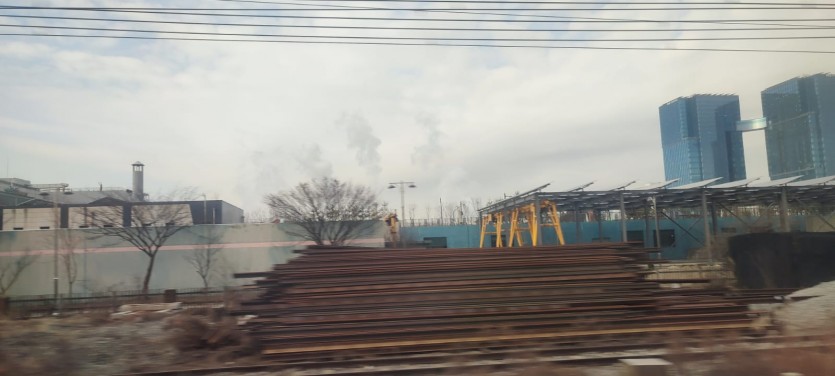Factory Emissions Fueling Air Pollution Crisis in South Korea: A Threa…
페이지 정보

본문
Hello everyone,
South Korea, one of the most industrialized nations in Asia, faces an ongoing battle with air pollution, with factory emissions playing a significant role in worsening the air quality. In major cities like Seoul, Incheon, and Ulsan, factories line the outskirts, pumping harmful smoke and pollutants into the atmosphere. These industrial zones, essential for economic growth, contribute to the deterioration of air quality, endangering both the environment and the health of millions of South Koreans. The harmful smoke emitted from these factories consists of particulate matter (PM), sulfur dioxide (SO2), nitrogen oxides (NOx), carbon monoxide (CO), and volatile organic compounds (VOCs), all of which have severe consequences for air quality.
The effects of factory emissions on air pollution are far-reaching and are most apparent in the form of smog, haze, and fine particulate matter that blankets the skies. The city of Seoul, home to over 10 million people, is notorious for its high levels of fine dust, which often reaches dangerous levels, especially during the winter months. The primary source of this pollution is the burning of fossil fuels in factories and power plants. These emissions, particularly from coal-burning factories, release large quantities of sulfur dioxide and nitrogen oxides into the air, which mix with atmospheric moisture and form acid rain, further contaminating the air and water sources. As a result, the people living in the proximity of industrial hubs are the most vulnerable, suffering from respiratory illnesses such as asthma, bronchitis, and other pulmonary diseases.
However, the impact of industrial emissions does not stop at the immediate health effects. Long-term exposure to polluted air is associated with severe chronic conditions such as lung cancer, heart disease, and even early death. Studies have shown that children, the elderly, and individuals with pre-existing health conditions are particularly at risk. In addition to health concerns, air pollution from factories also affects the country’s natural environment. Forests, rivers, and agricultural lands are all negatively impacted by the constant presence of pollutants, which can interfere with plant growth, soil quality, and water health. South Korea’s once-pristine landscapes are now tainted with pollution, making the nation’s environmental conservation efforts increasingly difficult to implement.
Despite the growing concerns, South Korea has made efforts to address factory emissions and reduce the harmful effects of industrial pollution. In recent years, the government has tightened environmental regulations, imposing stricter emissions standards for factories and promoting cleaner, more sustainable energy alternatives. In particular, there has been an increased focus on renewable energy sources such as wind, solar, and hydroelectric power to decrease the reliance on coal-burning plants. However, the implementation of these measures has been slow, and industries continue to prioritize economic growth over environmental protection. Public awareness campaigns and grassroots movements are pushing for stricter air quality standards and more significant investment in green technologies, but much work remains to be done to mitigate the impact of factory emissions on South Korea's air quality.
In conclusion, the harmful smoke emitted from factories in South Korea remains a major contributor to the nation’s air pollution crisis. This pollution not only affects the health of the population but also harms the environment in countless ways. While the government and various organizations are making efforts to address the issue, more aggressive policies and innovations are necessary to create a cleaner and healthier future for South Koreans. Reducing factory emissions, improving air quality monitoring systems, and fostering public engagement in environmental protection are crucial steps in the fight against industrial pollution. Only through continued efforts and collaboration can South Korea hope to alleviate the harmful effects of factory emissions on air pollution and secure a sustainable future for its people.
- PrevLearning About Recycling in South Korea: A Foreigner’s Perspective 25.01.03
- NextSouth Korea’s Roadside Newspaper culture 24.12.31
댓글목록
There are no registered comments.

